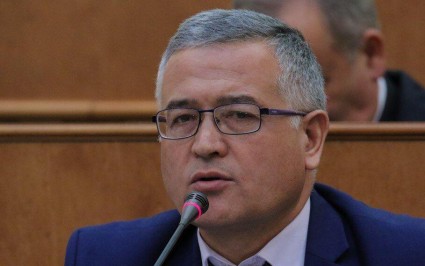The World Bank’s Board of Executive Directors has approved a $50 million concessional loan to implement the Uzbekistan Digital Inclusion Project. The project aims to support the development of the digital economy and broaden access to digital skills and employment opportunities in information technology-enabled services for thousands of young people in rural and remote locations.
The export of IT-enabled services (ITES) from Uzbekistan has experienced a significant surge, rising from $600,000 in 2017 to $140 million in 2022. This growth has been accompanied by an increase in the number of companies and high-paying jobs within the information technology sector. Despite these positive developments, the contribution of the information and communications technology sector to the national GDP remained modest at 1.9% in 2022.
According to the 2030 National Development Strategy, by the end of this decade, the country plans to transform into a Central Asian IT hub, increase the annual volume of IT exports to $5 billion, attract 1,000 foreign IT companies to launch operation in Uzbekistan, and provide employment opportunities for 300,000 youths in the IT sector.
To achieve these ambitious goals, Uzbekistan will need to allocate significant resources to skill training, the development of essential IT and office infrastructure, and the establishment of appropriate legislation, strategies, and incentives to attract foreign and local investments in the IT sector. Investments in Uzbekistan's digital economy could also play a crucial role in reducing the number of youths, including women, who are not receiving education and training and are not employed.
"The new World Bank-supported project will help Uzbekistan use the IT enabled services as a catalyst for economic growth, job creation, and foreign investments. It will be implemented by the IT Park under the Ministry of Digital Technologies with the objective of training thousands of people under the age of 30 residing in rural and remote locations. Moreover, the project will provide incentives to ITES companies to employ these trained individuals," noted Marco Mantovanelli, World Bank Country Manager for Uzbekistan.
In 2029, at the conclusion of the project, it is estimated that around 25,000 people will be employed in Uzbekistan’s ITES sector and about 15,000 people employed in related industries. To contribute to this goal, the project will support various activities, including:
- The launch of up to 11 Regional ITES Centers, offering modern office spaces for ITES companies to open their branches in the country’s regions.
- The training of around 6,200 youths, including 3,100 women and 250 persons with disabilities, in key skill areas such as communication, computer proficiency, and language skills (English and other foreign languages based on demand from ITES companies).
- The employment of around 9,000 youths, including 4,500 women and 360 persons with disabilities, by qualified ITES companies benefiting from financial incentives to hire young people that will be provided under the project.
- The preparation of legal and regulatory documents necessary to create a favorable environment for the operations of foreign and local ITES companies in Uzbekistan.
- The attraction of around 240 new ITES companies that will become residents of the IT Park and launch their operations in the country.














